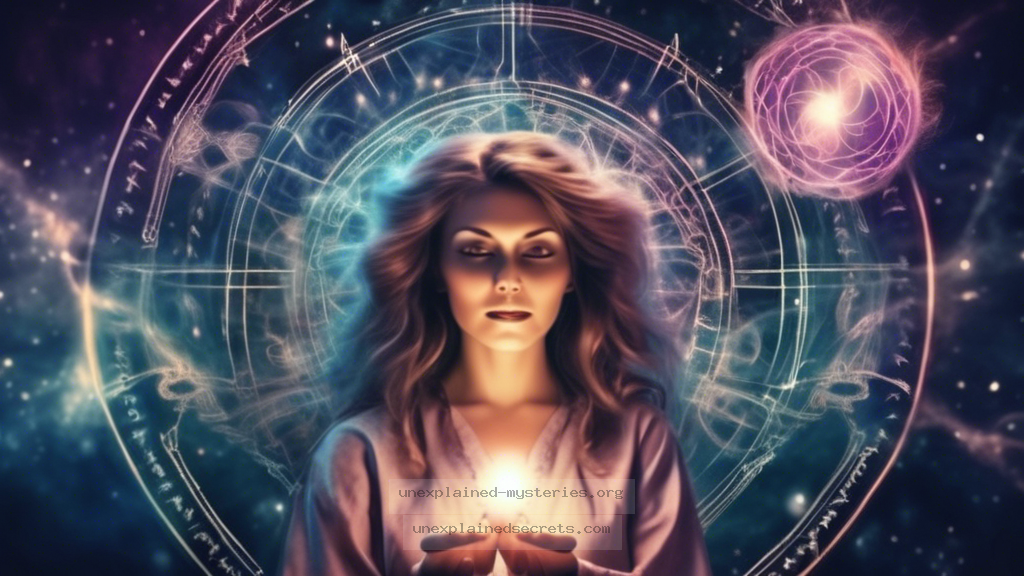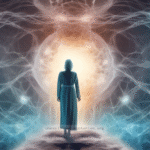Can Psychic Abilities Be Scientifically Proven, or Are They Just a Modern Myth?
Can Psychic Abilities Be Scientifically Proven, or Are They Just a Modern Myth?
The realm of psychic abilities has fascinated humanity for centuries, leading to countless debates about their validity and existence. While some swear by their experiences with psychics, mediums, and intuitives, others dismiss such phenomena as mere tricks or psychological illusions. The question remains: can these abilities be scientifically proven, or are they simply modern myths? This discussion is not only intriguing but also significant, as it touches upon the boundaries of science, consciousness, and our understanding of the human mind.
Historical Context of Psychic Abilities
The history of psychic abilities stretches back to ancient civilizations, where shamans, oracles, and mystics played crucial roles in their societies. From the Oracle of Delphi in ancient Greece to the shamans of indigenous tribes, these figures were often seen as conduits between the spiritual and physical worlds. They were tasked with providing guidance, healing, and insight into future events.
Throughout the ages, various cultures have documented instances of psychic phenomena. The 19th century saw a surge in interest with the rise of spiritualism, where individuals believed they could communicate with the dead. Notable figures, such as Edgar Cayce and Madame Blavatsky, brought psychic phenomena into the mainstream, leading to an era of fascination and skepticism.
Despite the long-standing history, scientific investigation into psychic phenomena began in earnest only in the 20th century, particularly after World War II. The establishment of parapsychology as a field aimed to explore these abilities rigorously. Institutions like the Rhine Research Center at Duke University conducted experiments to test psychic claims, often yielding mixed results.
Core Concepts and Theories in Psychic Research
At the heart of psychic phenomena are several core concepts that researchers explore. These include telepathy (mind-to-mind communication), clairvoyance (perception of distant or unseen events), precognition (knowledge of future events), and psychokinesis (the ability to move objects with the mind). Each of these abilities raises fundamental questions about the nature of consciousness and its interaction with the physical world.
Some theories suggest that psychic abilities might be linked to quantum physics. Proponents argue that consciousness could be a quantum phenomenon, allowing for instantaneous connections beyond typical spatial and temporal boundaries. This theory, though controversial, has garnered interest from both scientists and enthusiasts alike.
Key Insight: The scientific community remains divided on the existence of psychic abilities, with many considering them unfalsifiable and outside the realm of empirical science. However, a small subset continues to explore the intersection of consciousness and quantum mechanics. 💡
Documented Cases of Psychic Phenomena
Several documented cases have sparked interest and debate within both the paranormal and scientific communities. One of the most famous is the case of Uri Geller, an Israeli psychic known for his spoon-bending abilities. Geller’s performances have been subjected to scrutiny, with some claiming they are mere illusions. However, others argue that his abilities defy conventional explanation.
Another prominent example is the work of the US government’s Stargate Project, which investigated the use of psychic phenomena for military intelligence purposes. During the Cold War, the project sought to explore whether psychics could gather information from a distance. Though it was ultimately deemed unproven, the project’s existence highlights the serious interest in psychic phenomena at a governmental level.
| Case | Summary | Outcome |
|---|---|---|
| Uri Geller | Famous for spoon bending and telepathy. | Mixed; often dismissed as illusion. |
| Stargate Project | US government investigation into psychic espionage. | Disbanded; inconclusive results. |
| James Randi’s Million Dollar Challenge | Challenge offered to anyone who could demonstrate psychic abilities under controlled conditions. | No one succeeded; Randi’s challenge remains unclaimed. |
Scientific Testing and Evidence
Scientific testing of psychic abilities often involves controlled experiments designed to eliminate variables and biases. One of the most notable methods is the use of random number generators (RNGs) to test for precognitive abilities. In these experiments, participants are asked to predict the outcome of RNGs, and results are analyzed for statistical significance.
However, critics argue that many results can be attributed to chance or experimental flaws. The replication crisis in psychology further complicates matters, as many studies that initially suggested evidence for psychic phenomena have failed to be reproduced under similar conditions. This has led to a growing skepticism among scientists regarding the validity of psychic claims.
Warning: Misinterpretation of statistical data is common in psychic research. Many studies that appear to show significant results may not hold up under rigorous scrutiny. ⚠️
Alternative Perspectives on Psychic Abilities
While many scientists remain skeptical of psychic abilities, alternative perspectives suggest that these phenomena might represent a yet-to-be-understood aspect of human consciousness. Some psychologists propose that psychic experiences could stem from heightened intuition or subconscious knowledge rather than supernatural abilities. This perspective posits that individuals might tap into their unconscious mind, accessing information that is not readily available to their conscious thought.
Additionally, cultural and spiritual contexts often influence perceptions of psychic phenomena. In various traditions, psychic abilities are seen as gifts or natural extensions of human perception, rather than as paranormal events. This cultural lens can shape how individuals interpret and validate their experiences, often leading to a different understanding of what constitutes “proof.”
Common Misconceptions About Psychic Phenomena
Misconceptions surrounding psychic abilities abound, often fueled by media portrayals and anecdotal accounts. One prevalent myth is that all psychics can predict the future with absolute certainty. In reality, many psychics claim to provide insights based on probabilities or intuitive feelings rather than definitive predictions.
Another common misconception is that psychic abilities can be easily demonstrated under scrutiny. Many psychics report that their gifts are influenced by emotional states, environmental factors, and personal connections, making them unreliable in controlled conditions. This variability complicates the challenge of providing undeniable proof of psychic phenomena.
Notable Fact: The majority of psychic claims rely on subjective experiences, making them difficult to quantify or verify scientifically. ✅
Best Practices for Investigating Psychic Claims
For those interested in exploring psychic phenomena, adhering to best practices is essential. First, it is crucial to approach investigations with an open mind while maintaining a healthy skepticism. This balance allows for thorough exploration without jumping to conclusions.
Second, incorporating rigorous methodologies—such as double-blind testing and control groups—can help validate claims. Documenting the process and results transparently, allowing for peer review, is also fundamental in establishing credibility.
Lastly, consider the psychological and emotional aspects of the individuals involved. Many people seek psychic experiences during times of stress or uncertainty, which can influence perceptions and interpretations. Understanding this context can enrich the investigation and provide deeper insights into the phenomenon.
Future Developments and Ongoing Research
The future of psychic research remains uncertain, yet promising. As technology advances, new methods for exploring consciousness and psychic phenomena emerge. Brain imaging techniques, such as fMRI and EEG, allow researchers to investigate the neurological correlates of psychic experiences, potentially unveiling new insights into how the mind works.
Additionally, interdisciplinary approaches that combine psychology, neuroscience, and quantum physics may pave the way for groundbreaking discoveries. As societal attitudes toward consciousness and spirituality evolve, more researchers may be inclined to explore the interface between science and the mysterious aspects of human experience.
Conclusion
The question of whether psychic abilities can be scientifically proven or if they are just modern myths remains a complex and contentious topic. While documented cases and anecdotal evidence persist, rigorous scientific scrutiny continues to challenge the validity of these claims. Understanding the historical context, core concepts, and alternative perspectives enriches this discussion, highlighting the intricate relationship between consciousness, perception, and the unexplained.
The journey to uncover the truth about psychic phenomena is ongoing, with future research holding the potential to shed light on this enigmatic aspect of human experience. As we navigate this fascinating terrain, it is essential to remain curious, open-minded, and grounded in scientific inquiry.
Other Articles
Recent Posts
- What Happened to Flight MH370? The Conspiracy Theories That Still Haunt Us
- What Secrets Lurk Within the Walls of the Infamous Trans-Allegheny Lunatic Asylum?
- What Evidence Supports the Existence of Bigfoot in the Pacific Northwest?
- What Happened to the Indus Valley Civilization? Unraveling the Mysteries of Ancient Urban Life
- Can Telepathy Be Scientifically Proven Through Laboratory Evidence?







